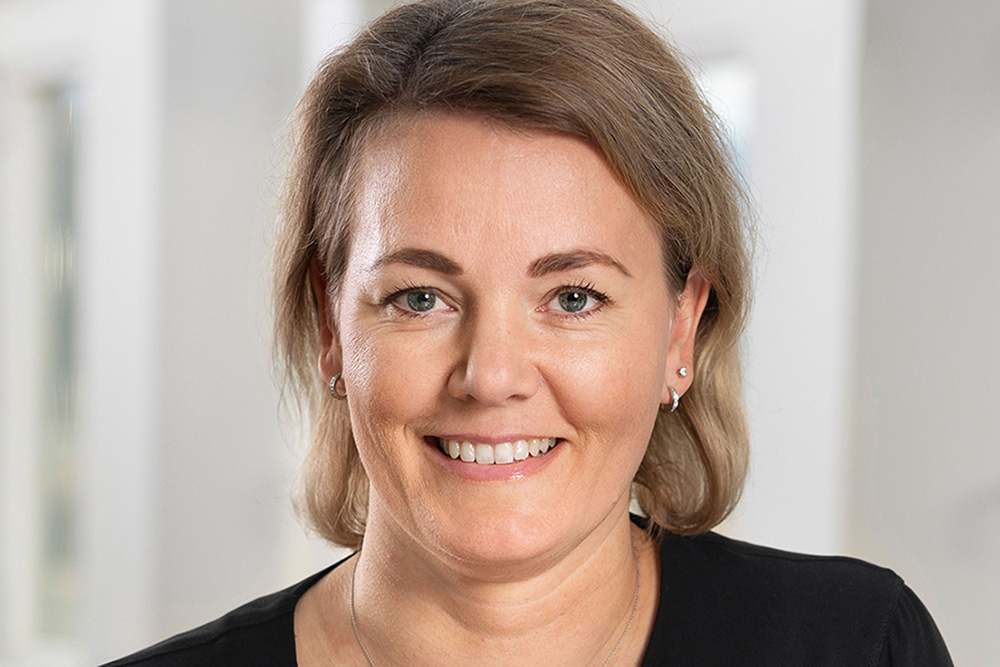瑞典央行(Riksbank)正在开发和测试其数字货币e-krona(数字克朗)。在变化迅速的区块链技术中,瑞典正寻求成为货币世界的全球领导者。
瑞典央行e-krona项目的设计师于本周接受了《财富》杂志的采访,谈及世界知名的瑞典克朗的新数字版本。如果该项目成功,新的数字货币将与其他已经运行的支付方式一起,被投入到瑞典技术成熟的货币体系中,以保护瑞典克朗免受去中心化加密货币崛起的影响。
瑞典央行e-krona试点部门负责人米特拉·桑德伯格表示:“我们希望在支付方面提供新的方式,在这个新世界找到自己的角色。”

桑德伯格提到了推动全球经济增长的无现金商业的兴起。从PayPal到Revolut再到Apple Pay,越来越多的支付操作由电子设备完成,不再需要纸币或硬币交易。与此同时,投机性加密货币(比特币、以太币等)蓬勃发展,吸引了新一代加密货币的看涨者。他们认为,基于区块链技术的数字货币就是未来的现金。世界各地的央行都在作出反击,希望在新的市场中站稳脚跟,以免在与大型科技公司的竞争中落败,而e-krona正是老牌央行捍卫本国货币体系的运动中的最新一击。
“我们行动的起始点是现金骤减现象的出现——因为现金仍然是国家担保的唯一支付方式。现金在减少,瑞典央行在支付市场的作用也在减少。”桑德伯格说。
桑德伯格表示,如果得到瑞典政府的批准,e-krona将与实体现金一起被投入社会。它将作为一种“补充”,不会与瑞典的移动支付系统构成竞争。
一个“政治决定”
项目推出的具体时间目前还无法确定,这将依赖于议会对国家在支付市场所扮演角色的调查进展——而该调查最晚将于2022年11月才能完成。与此同时,瑞典央行也在利用这个时间差来完善其虚拟货币产品,以便在政府决议通过后立即推广。
桑德伯格指出,e-krona的未来“将是一个政治决定”。
其他央行可能也会引入数字货币,但互相不构成竞争。瑞典央行的项目团队只是想保持本国货币和央行之间的相关性。
“如果我们不即刻行动,如果现金消失,私营公司的数字货币将变成唯一的选择。”技术项目经理米凯尔·林格伦补充道。

e-krona项目的总成本尚未确定。自2019年以来,瑞典央行每年向该项目投入5000万瑞典克朗的技术资金。
本周,瑞典央行公布了其第一阶段研究的结果。该研究在一个独立的测试环境中进行,研究人员使用一家私人公司的区块链技术模拟了e-krona。在研究的下一阶段,商业银行等其他在线支付服务也将纳入参与者行列,以测试e-krona在商业和零售中的应用情况。
国际清算银行(Bank for International Settlements)今年1月进行了一项调查,结果显示未来三年,全球五分之一的人口可能会使用数字货币。
今年2月,中国启动了试点计划,向5万名北京居民发放每人30美元的新数字货币。
欧洲央行(European Central Bank)也提出了推出数字欧元的可能性,称其将是一种“所有公民和企业都可以使用的电子央行货币”。
巴哈马则推出了一种相当于巴哈马币的法定数字货币——“沙币”(sand dollar),并开发了一款配套的移动应用。(财富中文网)
编译:杨二一
瑞典央行(Riksbank)正在开发和测试其数字货币e-krona(数字克朗)。在变化迅速的区块链技术中,瑞典正寻求成为货币世界的全球领导者。
瑞典央行e-krona项目的设计师于本周接受了《财富》杂志的采访,谈及世界知名的瑞典克朗的新数字版本。如果该项目成功,新的数字货币将与其他已经运行的支付方式一起,被投入到瑞典技术成熟的货币体系中,以保护瑞典克朗免受去中心化加密货币崛起的影响。
瑞典央行e-krona试点部门负责人米特拉·桑德伯格表示:“我们希望在支付方面提供新的方式,在这个新世界找到自己的角色。”
桑德伯格提到了推动全球经济增长的无现金商业的兴起。从PayPal到Revolut再到Apple Pay,越来越多的支付操作由电子设备完成,不再需要纸币或硬币交易。与此同时,投机性加密货币(比特币、以太币等)蓬勃发展,吸引了新一代加密货币的看涨者。他们认为,基于区块链技术的数字货币就是未来的现金。世界各地的央行都在作出反击,希望在新的市场中站稳脚跟,以免在与大型科技公司的竞争中落败,而e-krona正是老牌央行捍卫本国货币体系的运动中的最新一击。
“我们行动的起始点是现金骤减现象的出现——因为现金仍然是国家担保的唯一支付方式。现金在减少,瑞典央行在支付市场的作用也在减少。”桑德伯格说。
桑德伯格表示,如果得到瑞典政府的批准,e-krona将与实体现金一起被投入社会。它将作为一种“补充”,不会与瑞典的移动支付系统构成竞争。
一个“政治决定”
项目推出的具体时间目前还无法确定,这将依赖于议会对国家在支付市场所扮演角色的调查进展——而该调查最晚将于2022年11月才能完成。与此同时,瑞典央行也在利用这个时间差来完善其虚拟货币产品,以便在政府决议通过后立即推广。
桑德伯格指出,e-krona的未来“将是一个政治决定”。
其他央行可能也会引入数字货币,但互相不构成竞争。瑞典央行的项目团队只是想保持本国货币和央行之间的相关性。
“如果我们不即刻行动,如果现金消失,私营公司的数字货币将变成唯一的选择。”技术项目经理米凯尔·林格伦补充道。
e-krona项目的总成本尚未确定。自2019年以来,瑞典央行每年向该项目投入5000万瑞典克朗的技术资金。
本周,瑞典央行公布了其第一阶段研究的结果。该研究在一个独立的测试环境中进行,研究人员使用一家私人公司的区块链技术模拟了e-krona。在研究的下一阶段,商业银行等其他在线支付服务也将纳入参与者行列,以测试e-krona在商业和零售中的应用情况。
国际清算银行(Bank for International Settlements)今年1月进行了一项调查,结果显示未来三年,全球五分之一的人口可能会使用数字货币。
今年2月,中国启动了试点计划,向5万名北京居民发放每人30美元的新数字货币。
欧洲央行(European Central Bank)也提出了推出数字欧元的可能性,称其将是一种“所有公民和企业都可以使用的电子央行货币”。
巴哈马则推出了一种相当于巴哈马币的法定数字货币——“沙币”(sand dollar),并开发了一款配套的移动应用。(财富中文网)
编译:杨二一
Sweden’s central bank is on a course to develop and road test its digital currency offering, e-krona, as it seeks to become a global leader in the fast-changing world of blockchain-technology–led currencies.
The architects behind the Riksbank’s e-krona project spoke to Fortune this week about their plans to pilot a digital version of the country’s storied currency. If the project proves successful, the digital currency will be added to the mix of other payment types already in place in the famously tech-savvy country, and will serve to protect the Swedish krona against the rise of decentralized cryptocurrencies.
“We want to update our offer when it comes to means-of-payment, and we want to find our role in this new world,” said Mithra Sundberg, head of the e-krona pilot division at Riksbank.
Sundberg is referring to the rise of cashless commerce that propels an increasing part of the global economy. From PayPal to Revolut to Apple Pay, more and more payments are conducted electronically without notes and coins changing hands. Meanwhile, the booming rise in speculative cryptocurrencies—from Bitcoin to Ether—has attracted a new generation of crypto bulls who see the digital currency, based on blockchain technology, as the cash of the future. Central banks the world over are pushing back, hoping to gain a foothold in this market so as not to lose out to Big Tech. The e-krona is the latest such effort of an established central bank defending its currency and its monetary system.
“Our starting point is the rapid decline in cash, because cash is still the only state-guaranteed means of payment. Cash is declining, and the role of Riksbank in the payment market is decreasing as well,” Sundberg said.
If it gets the Swedish government’s go-ahead, the e-krona will be put into society alongside physical cash to act as a “supplement,” Sundberg added. It will not compete with mobile payment systems in Sweden.
A ‘political decision’
The timeline of any rollout is uncertain, as it relies on a parliamentary inquiry on the role of state in the payment market, which is due to be completed in November 2022. In the meantime, the Riksbank is taking the opportunity to refine its virtual currency offering so that it can be introduced as soon as the government makes a decision.
Sundberg noted that the future of the e-krona “will be a political decision.”
Other central banks may introduce digital currencies, but they are not competition. The team working on the project at Riksbank simply want to maintain the relevancy of their own currency and subsequently of their own central bank.
“If we don’t do this, the digital currencies from private companies will be the only alternative if cash disappears,” added technical project manager Micael Lindgren.
The total cost of the e-krona project is yet to be determined. So far, Riksbank has put 50 million kronor toward the technical research project every year since 2019.
This week Riksbank released findings from the first phase of its study, which simulated the e-krona in an isolated test environment using the blockchain technology of a private company. In the next phase of the study, participants will include commercial banks and other online payment services to test the e-krona in commercial and retail applications.
The Bank for International Settlements conducted a survey in January, finding that one-fifth of the world’s population are likely to issue their own digital currencies in the next three years.
China kicked off its own pilot scheme in February, handing out $30 each of its new digital currency to 50,000 Beijing residents.
The European Central Bank has dangled the prospect of launching a digital euro, which it said would be “an electronic form of central bank money accessible to all citizens and firms.”
The Bahamas has already introduced a digital “sand dollar,” a digital legal currency equivalent to the Bahamian dollar, with an accompanying mobile app.






